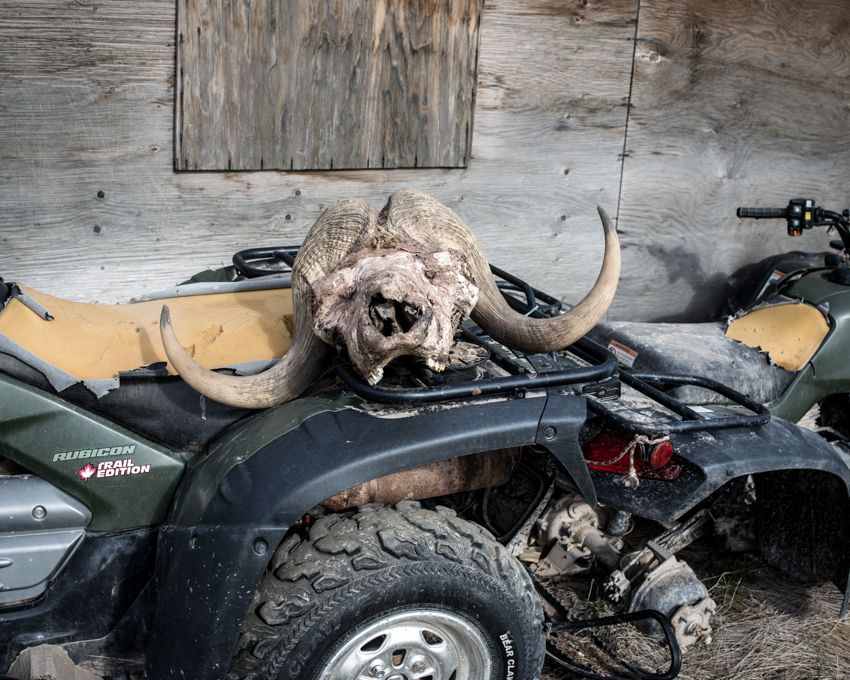For decades now, the Inuit hamlet of Baker Lake in the Nunavut territory has seen small groups of its residents dispute the opening of new mines in their district. In particular, they are opposed to the projects of Areva, a French company that seeks to exploit uranium deposits 80 km west of the village. Undeterred by the combined power of the multinationals and the Canadian State, the local activists are trying, somehow or other, to maintain control over their ancestral lands, preserve the region’s environment and above all, continue with their traditional lifestyle in harmony with nature.
At the same time, their idea of protecting the environment is a far cry from that of the urban-based environmental activists in southern Canada. In fact, whether or not they are in favor of mining operations, the Inuit all agree on one point: they want to be able to continue with the unlimited, year round hunting of caribou, without permits—an ancestral practice that has gained official recognition from all Canadian administrations.
Mounted on their snowmobiles in the winter and riding off-road vehicles in the summer, they hunt down herds of caribou in the Tundra, shooting them with rifles. In contrast to the “people from the south,” white Canadians, the Inuit hunt for food and not for sport. The entire animal is eaten, including the stomach, which is left to marinate in the animal’s intestinal juices for one week. For the poorest families, the yield from the hunt is an essential supplement to their diet. Additionally, the majority of the hunters continue to respect the tradition of their ancestors by distributing meat, free of charge, to those too old or too weak to go hunting themselves.
Hunting is not only a necessity for the Inuit, but is one of the few pleasures in their otherwise harsh and often monotonous life. Occasionally, they bring their wives along on the hunting party; they, in turn help with transporting and skinning the game. These days, some of the women also do the shooting.
Caribou are not the only game hunted by the Inuit. If danger arises, they reserve the right to kill bears, wolves, foxes, wolverines, goats, muskoxen and all other wild animals of the Tundra. Likewise, the villagers living along the Hudson Bay have retained their right to fish without restrictions, using harpoons and guns to kill whales and seals, as they see fit.
As a result of these hunting practices, several groups opposed to the opening of new mines are at odds with each other and unable to work in unison. The big North American groups involved with protecting the environment are prepared to fight on two fronts: they oppose the opening of new mines, and they are protesting the Inuit’s right to unlimited hunting. Consequently, they often refuse to align themselves with small, locally-based environmental groups, who in turn find themselves left to their own devices, isolated and without resources.
In Baker Lake, opponents of the uranium project have allied themselves with the local hunters and trappers association. Torn between contempt and anger, the Inuit point out that it’s easy to be righteous and inflexible when it comes to defending animals when you have the vantage point of a comfortable life in some North American city. In fact, the anti-mine activists in Baker Lake find themselves caught in the crossfire. On one side, you have outsiders who will come here and destroy nature and poison the animals of the Tundra, making them unfit for human consumption. On the other side, different outsiders want to protect the animals by banning hunting, thereby forcing the local population to consume only expensive, mediocre food found in the village’s small supermarkets. But that leaves only one way to pay for this shop food: earn the money by going to work in the mines...
Translated from French by Anne Thurow.
